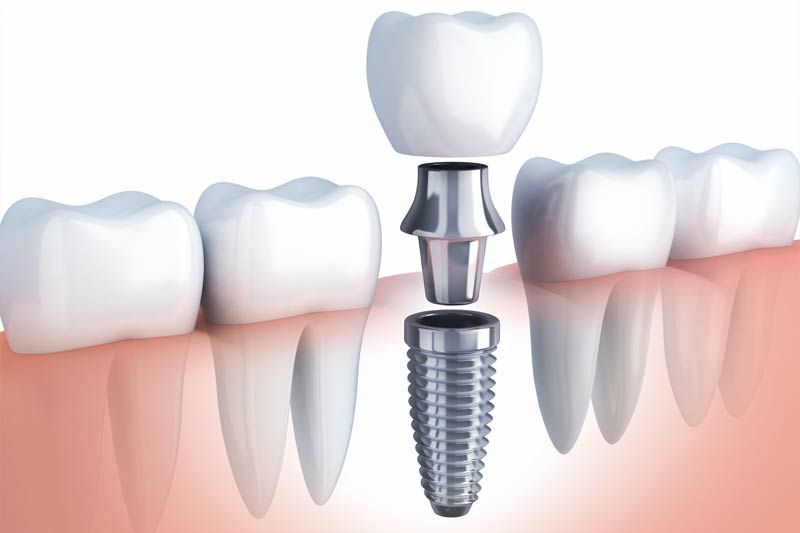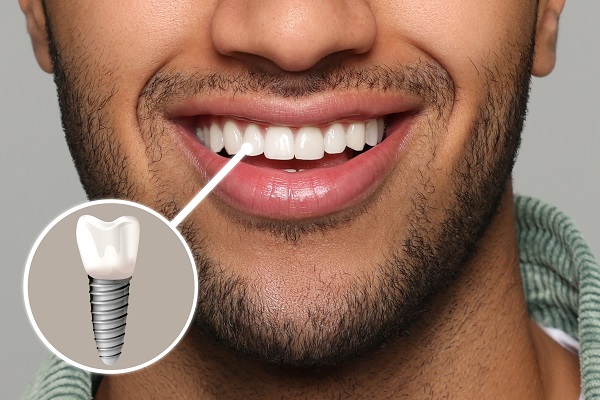Dental Clinic Granville OH Step-by-Step Guide to Dental Implant Procedures
Dental implants have emerged as a preferred choice for individuals in search of a long-term answer to tooth loss. One essential side of understanding dental implants entails their effect on adjacent teeth. This is particularly essential for ensuring the health and longevity of the complete dental structure.
When a dental implant is positioned, it mimics the function of a natural tooth root. By doing so, it helps maintain the integrity of the encompassing bone structure. Natural teeth depend on a balanced, interconnected system for support, and dental implants can contribute positively to that dynamic. The stability offered by the implant permits for higher distribution of chew forces, which can prevent undue stress on adjacent teeth.
Dentist Office Columbus OH Dental Implant Types: Choosing the Right Solution
In cases the place a tooth is missing, the neighboring teeth may shift into the vacant area. This shifting can result in misalignment and varied different issues. By placing a dental implant, the chance of this shifting is decreased, as the implant acts as a placeholder that preserves the natural alignment of surrounding teeth. This preventive impact is essential for long-term oral health and function.
Another essential consideration is bone loss. When a tooth is misplaced, the jawbone within the space can begin to deteriorate due to an absence of stimulation. Dental implants help prevent this bone loss by offering the necessary stimulation to the jawbone, very like a natural tooth root would. This preservation of bone not solely helps the implant itself but in addition contributes to the stability of adjacent teeth.
The sort of fabric used in dental implants, typically titanium, has a novel property of osseointegration, which means it fuses with the bone over time. This integration provides a sturdy foundation for the synthetic tooth while ensuring that the implant doesn’t negatively have an result on surrounding constructions. As the implant integrates, it creates an setting that contributes positively to the health of the adjacent teeth.

Regular dental check-ups play a vital position in monitoring the influence of dental implants on adjacent teeth. Professional assessments might help establish any points that may come up, guaranteeing prompt treatment and maintaining the health of the whole dental arch. These evaluations may include X-rays to verify for bone density and the overall condition of the implant and surrounding teeth.
Dentists Pataskala OH Frequently Asked Questions About Dental Implants
Oral hygiene practices are vital for people with dental implants. Proper brushing and flossing habits not solely contribute to the longevity of the implant but also make certain that adjacent teeth remain healthy. Food particles and plaque that accumulate around the implant can cause problems, together with peri-implantitis, an inflammatory condition that can affect surrounding teeth and tissues.
The positioning of dental implants can affect the health of adjacent teeth. If an implant is placed at an angle or not properly aligned, it could lead to elevated pressure on neighboring teeth. This misalignment might trigger put on and tear on adjacent enamel, doubtlessly resulting in cavities or other dental issues. Therefore, the ability and experience of the dentist performing the implant process are paramount in reaching a successful end result.
In some cases, additional procedures could also be necessary to organize the encircling area for an implant. Bone grafting or sinus lifts might help create a greater setting for the implant. While these procedures are geared toward enhancing the site for the implant, in addition they serve to guard the health of adjacent teeth by creating a extra stable basis.
Dentist Columbus OH Dental Implant Procedures

As dental know-how evolves, developments in implant techniques lead to higher outcomes. Improved imaging strategies and computer-aided design allow for more precise placements that decrease risk to adjacent teeth. With these advancements, the probability of complications that could come up from improperly positioned implants diminishes considerably.
Post-operative care also performs a critical function in making certain that adjacent teeth remain unaffected. Patients must adhere to the dentist's instructions regarding food regimen, oral hygiene, and follow-up visits. Neglecting these pointers may lead to issues that influence not only the implant but also the neighboring teeth.
Orthodontics Columbus OH Permanent Dental Implants
In conclusion, dental implants, when placed correctly and cared for properly, have the potential to boost the health of adjacent teeth rather than detract from it. They maintain alignment, stimulate bone progress, and provide a safe basis that helps the whole dental structure. Understanding how dental implants affect adjacent teeth emphasizes their significance as a long-term tooth replacement solution. With continuous advancements in expertise and strategies, the mixing of dental implants into restorative dentistry is turning into more and more profitable, guaranteeing healthy and functional smiles for years to return.

- Dental implants prevent adjacent teeth from shifting into the gap created by a missing tooth, serving to to take care of correct alignment in the mouth.
- The rebuilding of the jawbone by way of an implant can stimulate surrounding teeth and hold them healthy by offering necessary bone density that might in any other case diminish.
- Adjacent teeth profit from the stabilization that dental implants present, lowering the risk of wear and tear from misalignment during chewing.
- Implants can protect adjacent teeth by performing as a framework, which might distribute bite forces evenly across the dental arch as an alternative of inserting undue stress on neighboring teeth.
- When placed accurately, dental implants reduce the risk of gum disease which can affect adjacent teeth by sustaining a clear and wholesome gum line.
- The presence of an implant can facilitate an improved oral hygiene routine, as it eliminates the need for bridgework that would lure food particles around adjacent teeth.
- Regular dental check-ups can reveal how properly the implant integrates with surrounding constructions, making certain ongoing health for adjacent teeth.
- Implants can prevent the natural process of bone resorption that happens after tooth loss, positively impacting the stability and longevity of adjacent teeth.
- The use of dental implants may scale back the necessity for more invasive procedures sooner or later, providing a long-term solution that maintains the structure of the entire dental arch.
- Successful integration of an implant into the dental arch enhances overall oral function, often leading to improved confidence and oral health for adjacent teeth.undefinedHow do dental implants affect adjacent teeth?
What impact do dental implants have on the alignment of adjacent teeth?
Dental implants typically prevent the shifting of adjacent teeth, serving to to hold up correct alignment. This stability can cut back the risk of creating chunk issues over time.
Can dental implants trigger injury read this article to nearby teeth?
When placed appropriately by a qualified professional, dental implants shouldn't harm adjacent teeth - Pediatric Dentist Alexandria OH. However, improper placement or inadequate planning could lead to complications
Johnstown Dental Centerburg OH Dental Implants: Services and Expertise
Do dental implants require any particular care regarding adjacent teeth?
Maintaining good oral hygiene is essential. Surrounding teeth ought to be brushed and flossed frequently, and routine dental check-ups will help ensure that both the implants and adjacent teeth stay healthy.

Will dental implants impact the health of my surrounding teeth?
Dental implants can enhance the health of surrounding teeth by distributing chew forces evenly, decreasing wear and tear. Additionally, they'll prevent bone loss within the jaw, which can have an result on adjacent teeth.
Dental Care Associate Johnstown OH Full Mouth Dental Implants: A Comprehensive Solution
Are there any long-term results of dental implants on close by teeth?
Long-term, dental implants can help preserve the health of adjacent teeth by preventing shifting and potential gum issues, finally contributing to better oral health total. - Dental Implants Condit OH
Can This Site gum problems come up around adjacent teeth after getting implants?
If correct dental care is neglected, gum issues may develop around each the implants and adjacent teeth. Following post-operative care directions is crucial to minimize these risks.
Dentist Office New Albany OH Affordable Dental Implants: Finding the Best Value
How do More Bonuses dental implants evaluate to bridges when it comes to adjacent teeth?
Dental implants are typically helpful as they don’t require alteration of adjacent teeth, unlike bridges, which necessitate reshaping of close by teeth for help. (Dentist Office Columbus OH)
Can I still get cavities in adjacent teeth if I actually have dental implants?
Yes, adjacent teeth can nonetheless develop cavities if not properly cared for. Dental implants themselves cannot get cavities, however they require vigilant hygiene practices to guard surrounding natural teeth.
What is the success rate of dental implants in relation to surrounding teeth?
The success rate of dental implants is high, but it largely is determined by the standard of the procedure and ongoing care. Well-maintained implants usually result in better outcomes for adjacent teeth as properly.